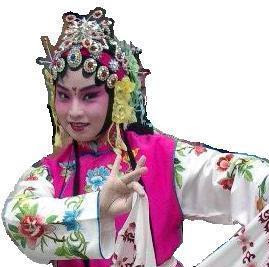

1971年,義大利導演維斯康堤(Luchino Visconti)將德國作家湯瑪斯曼(Thomas Mann)的小說『Der Tod in Venedig(Death in Venice, 魂斷威尼斯)』拍成電影,榮獲坎城影展的25週年紀念獎。隨著馬勒《第五號交響曲》第四樂章緩慢悠揚的旋律,一段追求至美極善的經歷,一段歷經美與死兩面的旅途,在水都威尼斯,似霧溟茫地展開。
多年以前,觀賞這部電影是在一個毫不起眼的假日午後,沒有燦爛的陽光,沒有與這部片相配的觀賞環境,不過威尼斯,就因為是威尼斯,我可以不顧身邊這些卑劣煩悶的噪音,完完全全投身在這場美麗致命的追逐。從Aschenbach始感衰老倦怠移身至威尼斯修養,驚遇俊美非常的波蘭少年Tadzio,展開無法自拔的深戀追慕,直到不覺瘟疫流行而染病死於海灘為止,美與死、愛與藝術反覆糾結,纏綿出一段即使肉體腐朽死去依然要為自己深深信奉的美麗化為一縷芬芳。大一時,為這部片寫了一篇英文心得,以下將此篇文章收錄下來,在驚異於Tadzio攝人的美麗,感受Aschenbach為藝術與美而走向死亡的精神的同時,人類依舊望著遠在天邊兀自輝煌的星辰,充滿無數欲拒還迎的矛盾情感,化為裊裊輕煙,卻不知飄向何方。
“Death in Venice” was the most incredible film that I had ever seen. Its depth made Venice different from the usual days and also changed the image of Venice in my mind.
What did we think about Venice? A romantic place, a gentle city or an antique water town? In this film, Venice’s palaces were still splendid but I also saw the crumbling walls and dilapidated house beside the canal. The beauty mixed with the death; the sun was covered with the fog. Venice went far away romantic but being led into the dark. The director used the special expression to present the different part of Venice. On the waving little boat, the boatman wasn’t young and singing the romantic songs but old and greedy. In the grand square, there were no flying pigeons but filling with the smell of the disinfectant. The well―known popular place was attacked by the dreadful disease. Everything seemed to die in the muggy and moist fog quietly. In the film, Venice combined with the opposite of light and shadow and became a different city from before.
The perfect image of the role in this film was an angel―like young boy named Tadzio who was the last and the only beauty in Venice. His soft curly hair wavered in the sea wind. His enjoyable mood never changed though the dead disease had fallen in Venice. In my opinion, Tadzio’s beauty symbolized a kind of spirit, which was out of the common customs and a kind of natural creation, which was from the crystal clear soul. In Venice where suffered from the disease, Tadzio just liked the silvery white moonlight in the dark night. On the contrary, as to Aschenbach, the situation was completely different. He surprised at Tadzio’s charm and chased the beauty continuously in the putrid Venice. But he didn’t recognize that human beings could never catch something forever. In the brilliant hotel, near the archaic bridge and on the sandy beach, Tadzio was still beautiful as before but he was becoming feeble day by day. Although Aschenbach was a famous scholar, he still sank into the inevitable lure of the beauty and died in Venice at last.
In the film, there were not many lines of the actors. It merely used the slow and broad filming skill, which could make us feel more deeply. In fact, this kind of film was too deep to understand completely but having more space of thinking than those purely entertainment films. From “Death in Venice”, I got one idea about human. Our mood of chasing the most wonderful and beautiful thing was the same at all times and in all countries. However, we searched through thousands of year, the highest glory was still over the wonderland as the shining star far away from our planet. We wrote the mythology to invite the wonderful god and goddess’ living. We built the magnificent churches to imagine the glorious heaven. But our looks and mind will never compare with those gods and fairies; our society will never be similar to the heaven. I knew that perhaps this thought was too pessimistic and negative. But sometimes we had to throw away the false hopes, which were full in the world and face the dark side, which hid in our heart and the real fact. In the end of the film, the pure and holy beauty as Tadzio glorious stood still in the soft wave of sea and the feeble and foolish common customs as Aschenbach weakly died in the rotten chair. Venice, at that time, mixed with the beauty and death, God’s heaven and hell, then finally disappeared in the golden wave of sunset.



